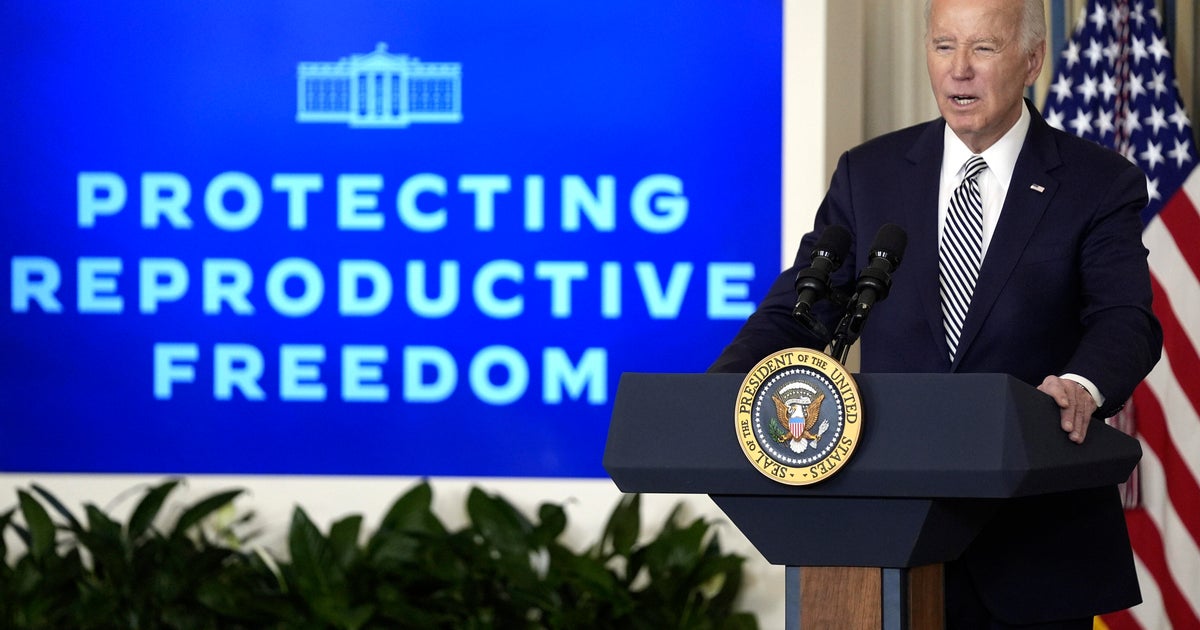Puerto Rican Vote May Sway Swing States
Follow CBSMIAMI.COM: Facebook | Twitter
MIAMI (CBSMiami/AP) — An influx of migrants from Puerto Rico, who fled to the U.S. to escape their island nation's debt ridden economy, could potentially shift the vote in some of the most closely contested states.
Together, Pennsylvania, Florida and Ohio — three pivotal states in the fall — absorbed more than 22,500 Puerto Rican migrants in 2013 alone. Many more Puerto Ricans already living on the mainland have relocated to these states from traditional hubs such as New York.
Recent polls suggest that for now, Democrat Hillary Clinton leads in Pennsylvania and has the edge in Ohio, while Clinton and Republican Donald Trump are in a close race in Florida.
"Think about what happened in 2000" with the presidential recount in Florida, said Sandra Suarez, a professor of political science at Philadelphia's Temple University. "The difference was a few hundred votes."
Puerto Ricans living on the island can only vote in presidential primaries. As U.S. citizens, they are immediately eligible to vote in national elections upon residency and registration on the mainland. Even if only one-quarter of eligible recent Puerto Rican migrants vote in Pennsylvania and Florida, that could be enough to tilt a close race.
Dozens of new grassroots organizations have emerged in recent years to encourage Puerto Ricans to vote, said Justin Velez-Hagan, founder of the National Puerto Rican Chamber of Commerce.
The Rev. Roberto Luis Lugo of Philadelphia, who has been organizing activists to get Puerto Ricans to vote, said it doesn't really matter for whom they vote, as long as they exercise their right as citizens. "If they vote, we can make a big difference in whatever election we have," he said.
Puerto Rico's economy has been on the decline since the 1990s, when tax incentives for U.S. companies to operate in Puerto Rico were repealed. Stagnation turned into a free-fall in the 2007 housing market crash. The island has failed to bounce back ever since, with unemployment topping 12 percent earlier this year —more than double the national average.
New York has been a traditional hub for Puerto Rican migrants, but they are increasingly settling elsewhere, due mainly to New York's high cost of living. Puerto Ricans typically have a high turnout at home; voter participation often exceeds 70 percent. Organizers have in the past faced hurdles encouraging Puerto Ricans on the mainland to get to the polls.
Jonathan Lewis, a recent migrant to Philadelphia, left his hometown of Arecibo, Puerto Rico, in search of opportunity when his biomedical science degree would only land him a job at McDonald's. His girlfriend, a student at New York University at the time, invited him to the mainland. It was an easy decision, and he quickly found a job at FedEx.
But voting wasn't a priority for Lewis until he encountered an organizer on the street who registered him within minutes.
"People will always be more concerned about finding a job," Lewis said. "Once they already have a job, they will start probably having interest in some other things like voting, getting registered, that kind of thing."
In the 2014 elections, only about one-quarter of eligible Puerto Ricans on the mainland voted, whereas nationally, voter turnout reached about 42 percent that year, and 27 percent among Latinos as a whole, according to the Pew Center.
High turnout would likely favor Clinton. Polls show she leads by large margins among Latinos nationally, though those samples are not large enough to give a breakdown of her performance among Puerto Ricans specifically.
Clinton won Puerto Rico during the primaries and has made prominent campaign hires to appeal to Latino voters. The Trump campaign has been less successful at reaching out to Latino voters and lost Puerto Rico to Florida's Cuban-American Sen. Marco Rubio in a landslide during the primaries.
(TM and © Copyright 2016 CBS Radio Inc. and its relevant subsidiaries. CBS RADIO and EYE Logo TM and Copyright 2016 CBS Broadcasting Inc. Used under license. All Rights Reserved. This material may not be published, broadcast, rewritten, or redistributed. The Associated Press contributed to this report.)



